Analysis of University Students' habits in Argumentative Text Commentaries
DOI:
https://doi.org/10.24310/isl.vi17.14140Keywords:
Argumentation, Text Commentary, Primary Education, Higher EducationAbstract
This research explores the academic habits of Primary Education Grade students regarding methodology and didactic resources used to analyse argumentative texts and to produce argumentative comments on multimodal texts. It is framed within a descriptive quantitative methodology, with data collection by means of a Likert-type scale questionnaire. The exploratory objectives are focused on investigating customs related to class work in oral and written text commentary, the use of philological and critical commentaries, the training received in the analysis and production of argumentative texts, teacher revision and self-revision of argumentative commentaries, as well as the difficulties encountered in such discursive processes. The results obtained show the scarce use of text commentaries, both oral and written, in higher education classrooms, as well as the lack of formative opportunities in their academic life to develop their critical capacity through the interpretation and production of argumentative texts. Therefore, the analysis of the academic customs explored allows us to conclude the evidence of an important training deficit in the communicative practices of argumentative commentary and to proffer as an improvement the proposal of collegiate didactic initiatives where the strategic use of theoretical-practical resources related to argumentation and its discursive development in the commentary is promoted, since the defense and elaboration of arguments is a basic competence and the promotion of the critical commentary of texts is a competence of such a degree.
Downloads
Metrics
References
Adam, J. M. (1995). Hacia una definición de la secuencia argumentativa. Comunicación, Lenguaje y Educación, 25, 9-22.
Almela, R.; Caro, Mª T.; Lozano, G. (2009). Guía para los exámenes de Lengua castellana y de Comentario de texto. Pruebas de acceso a la Universidad de Murcia. Editum.
Bermejo-Luque, L. (2011). Giving Reasons. A Linguistic-Pragmatic Approach to Argumentation Theory. Springer
Benarroch, A. y Briceño, J. J. (2014). La argumentación como instrumento de mejora de docentes universitarios de ciencia en activo. En B. Peña Acuña (Coord.). Vectores de la pedagogía docente actual (pp. 35-55). ACCI.
Bisquerra, R. (Coord). (2009). Metodología de la investigación educativa (Vol. 2). La Muralla.
Caro, M. T., & González, M. (2018). Didáctica de la argumentación en el comentario de textos. Síntesis.
Caro, M. T., & González, M. (2015). El comentario de textos. In P. Guerrero y M. T. Caro (Eds.). Didáctica de la Lengua y Educación Literaria (349-364). Ediciones Pirámide.
Caro, M. T., Vicente-Yagüe, M. I., & Valverde, M. T. (2018). Percepción docente sobre costumbres metodológicas de argumentación informal en el comentario de texto. Revista Española de Pedagogía, 270, 273-293. doi: https://doi.org/10.22550/REP76-2-2018-04
Caro, M. T., De Amo, J. M. y Domínguez-Oller, J. C. (2021). Innovación epistémica de un modelo de comentario argumentativo de textos multimodales en la enseñanza del español como lengua materna y extranjera. Consistencia interna de una exploración. In A. Flores y R. Pérez (Coords.). Nuevos retos y perspectivas de la investigación en Literatura, Lingüística y Traducción (pp. 1738-1755). Dykinson.
Caro Valverde, M.T., Amo Sánchez-Fortún, J.M. d and Domínguez-Oller J.C. (2021). Implicit Teacher Theories Regarding the Argumentative Commentary of Multimodal Texts in the Teaching of Spanish as a Native and Foreign Language. Frontiers. Psychology, 12:749426. doi: 10.3389/fpsyg.2021.749426
Castelló, M., & Mateos, M. (2015). Las representaciones de profesores y estudiantes sobre escritura académica en las universidades españolas. Cultura y Educación: Revista de teoría, investigación y práctica, 27(3), 489-500. doi: https://doi.org/10.1080/11356405.2015.1072357
Cotteron, J. (1995). ¿Secuencias didácticas para enseñar a argumentar en la escuela primaria?. Comunicación, Lenguaje y Educación, 25, 79-94.
Cros, A. (2003). Convencer en clase. Argumentación y discurso docente. Ariel.
Cubero Pérez, M., Santamaría Santigosa, A., & Barragán Felipe, A. (2017). La argumentación en el aula: Una propuesta analítica. Aposta: Revista de Ciencias Sociales, 72, 78-100. https://idus.us.es/handle/11441/52703
Dolz, J. y Pasquier, A. (1996). Argumentar para convencer. Gobierno de Navarra. Departamento de Educación y Cultura.
Eemeren, F. van (2012). Maniobras Estratégicas en el Discurso Argumentativo. Plaza y Valdés-CSIC.
Guía de la asignatura de Grado en Educación Primaria “Estrategias para la Enseñanza de la Lengua y la Literatura” 2021/2022. Universidad de Murcia. https://aulavirtual.um.es/umugdocente-tool/htmlprint/guia/RLnUJ3pNik24LD2qxLAvufyOFrMnEO2WP4OFEULDDGHcBzdccuM
Hernández-Nieto, R. A. (2002). Contributions to Statistical Analysis. Universidad de Los Andes.
Kruse, O. (2013). Perspectivas sobre la escritura académica en la educación superior europea: géneros, prácticas y competencias. REDU. Revista de Docencia Universitaria, 11 (1), 37-58. doi:https://doi.org/10.4995/redu.2013.5591.
Kuhn, D., Hemberger, L., & Khait, V. (2016). Dialogic argumentation as a bridge to argumentative thinking and writing. Infancia y Aprendizaje. Journal for the Study of Education and Development, 39(1), 25-48. doi:10.1080/02103702.2015.1111608
Marraud, H. (2013). ¿Es lógic@? Análisis y evaluación de argumentos. Cátedra.
Padilla, C. (2020). Enseñar y aprender a argumentar a lo largo de la escolaridad: desafíos actitudinales, epistémicos, colaborativos y situados. Revista Iberoamericana de Argumentación, 20, 7-29. http://doi.org/10.15366/ria2020.20.001
Plantin, C. (2005). L´argumentation. Histoire, theories et perspectives. PUF.
Real Decreto 1393/2007, de 29 de octubre, por el que se establece la ordenación de las enseñanzas universitarias oficiales. Boletín Oficial del Estado, 260, de 30 de octubre de 2007, pp. 44037-44048.
Rodríguez-Martínez, F. (2016). El comentario de textos literarios en Educación Secundaria: evolución metodológica y papel de la literatura comparada. Ocnos. Revista de Estudios sobre lectura, 15 (2), 119-135. https://doi.org/10.18239/ocnos_2016.15.2.953
Thyrion, F. (1997). L´écrit argumenté. Questions d´aprrentissage. Peeters.
Vicente-Yagüe, M. I. de, Valverde, M. T., & González, M. (2019). Necesidades de formación del profesorado de Lengua y Literatura para el desarrollo de la argumentación informal en el comentario de texto. Educatio Siglo XXI, 37(1), 213-234. doi: http://doi.org/10.6018/educatio.363471
Villalón, R., & Mateos. M. (2009). Concepciones del alumnado de secundaria y universidad sobre la escritura académica. Infancia y Aprendizaje. Journal for the Study of Education and Development, 32(2), 219-232. doi: 10.1174/021037009788
Downloads
Published
How to Cite
Issue
Section
License
All contents published in Investigaciones sobre Lectura are protected under the Creative Commons Attribution-NonCommercial-ShareAlike 4.0 International (CC BY-NC-SA 4.0) license. All about this license is available in the following link: <http://creativecommons.org/licenses/by-nc-sa/4.0>
Users can copy, use, redistribute, share and exhibit publicly as long as:
- The original source and authorship of the material are cited (Journal, Publisher and URL of the work).
- It is not used for comercial purposes.
- The existence of the license and its especifications are mentioned.
There are two sets of authors’ rights: moral and property rights. Moral rights are perpetual prerogatives, unrenounceable, not-transferable, unalienable, imprescriptible and inembargable. According to authors’ rights legislation, Investigaciones sobre Lectura recognizes and respects authors moral rights, as well as the ownership of property rights, which will be transferred to University of Malaga in open access. The property rights are referred to the benefits that are gained by the use or the dissemination of works. Investigaciones sobre Lectura is published in an open access form and it is exclusively licenced by any means for doing or authorising distribution, dissemination, reproduction, , adaptation, translation or arrangement of works.
Authors are responsable for obtaining the necessary permission to use copyrighted images.

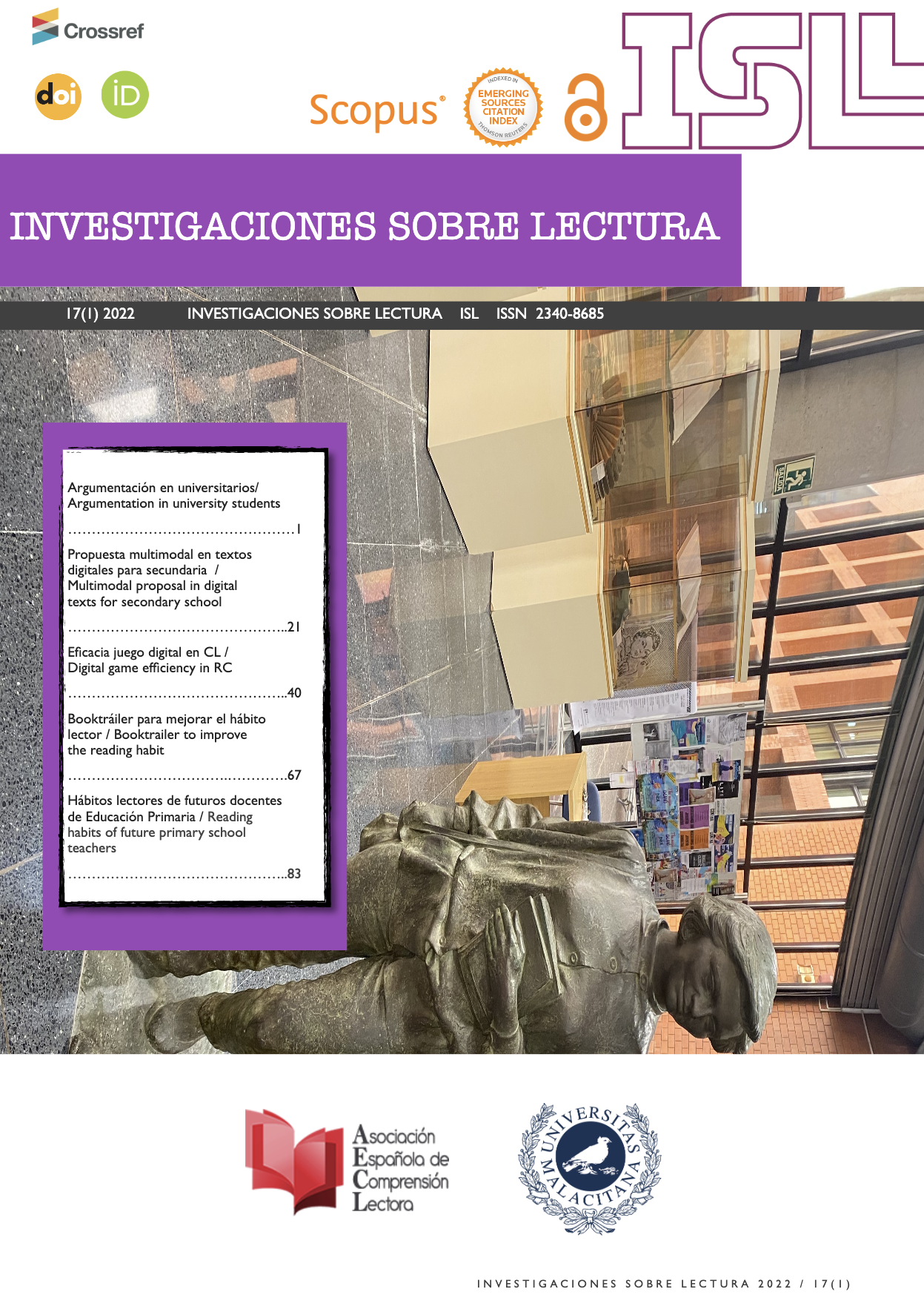
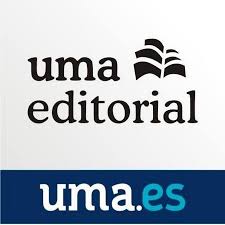
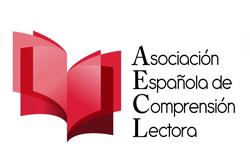
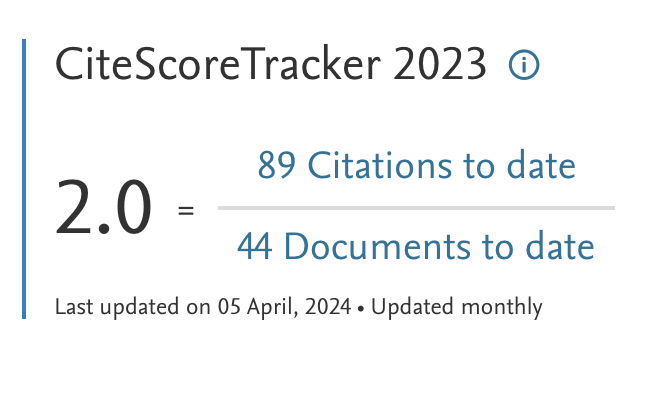
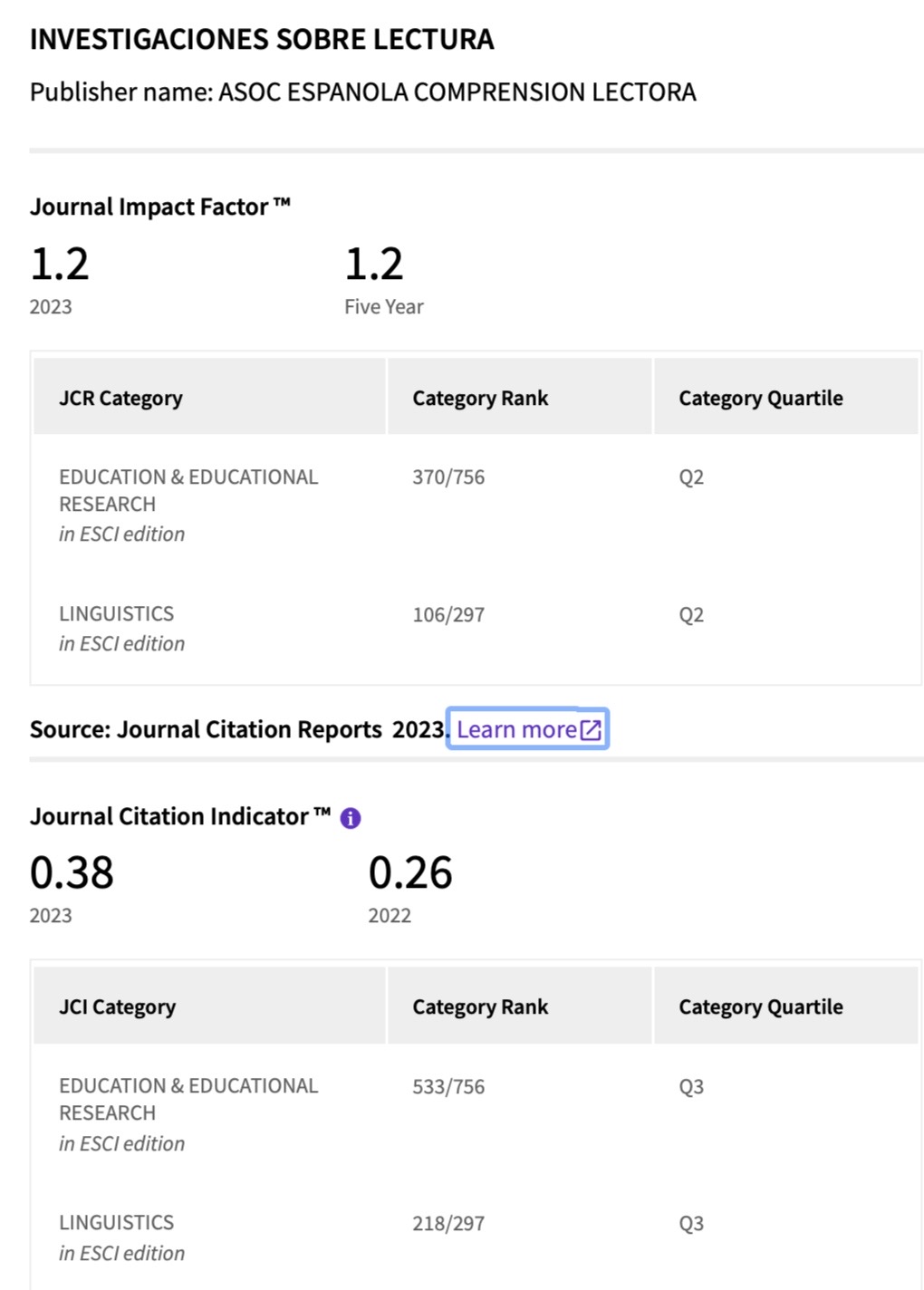
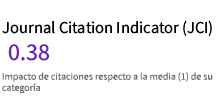
31.png)









